A Surreal Family Drama
Niclas Larsson’s directorial debut “Mother Couch” takes viewers on a bizarre journey through family dysfunction and existential crisis. The film’s premise is deceptively simple: an elderly mother, portrayed by the venerable Ellen Burstyn, visits a furniture store and refuses to leave a display couch. This act of defiance sets off a chain of events that unravels the fabric of her family’s relationships and sanity.
The film’s strength lies in its stellar cast. Burstyn delivers a powerhouse performance as the stubborn matriarch, infusing her character with a complex blend of vulnerability and iron will. Ewan McGregor, as her son David, brings a palpable sense of desperation and mental instability to his role. The ensemble, including Rhys Ifans and Lara Flynn Boyle, rounds out the cast with equally compelling performances that elevate the material.
Larsson’s direction showcases a keen eye for visual storytelling. The film’s stylish environments and surreal scenarios create an unsettling atmosphere that mirrors the characters’ inner turmoil. The sound design further enhances this sense of unease, immersing viewers in a world that feels off-kilter and unpredictable.
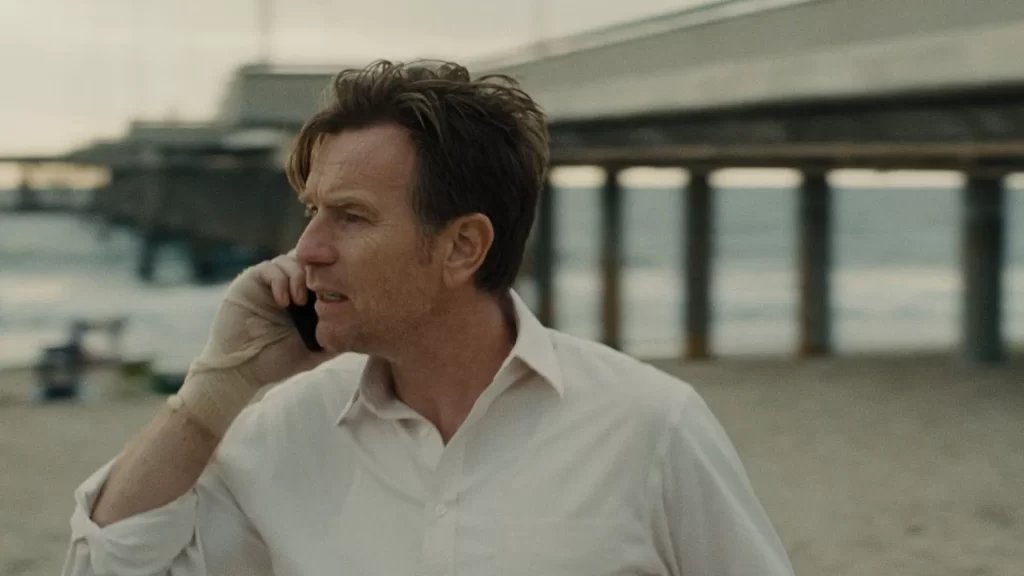
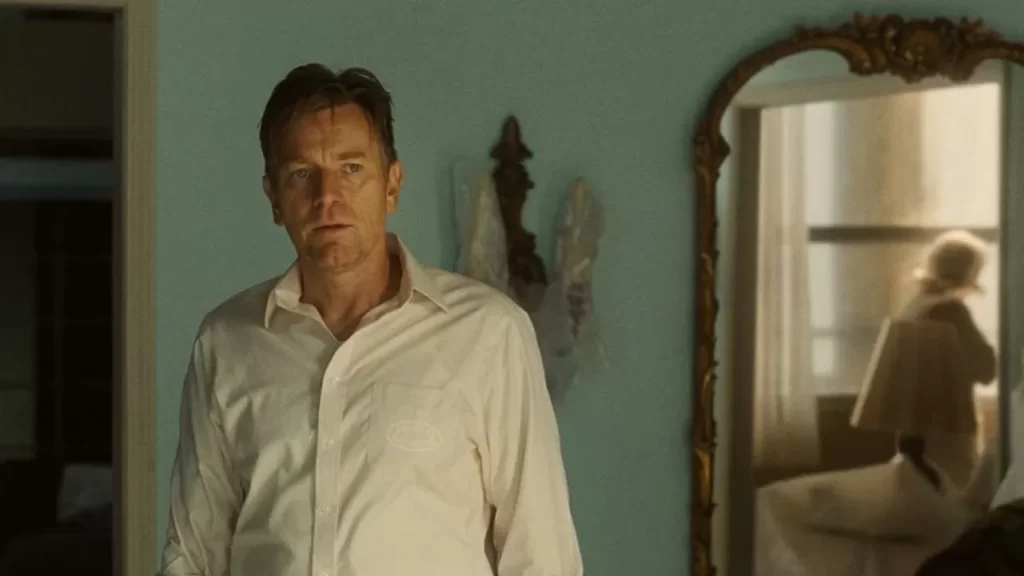
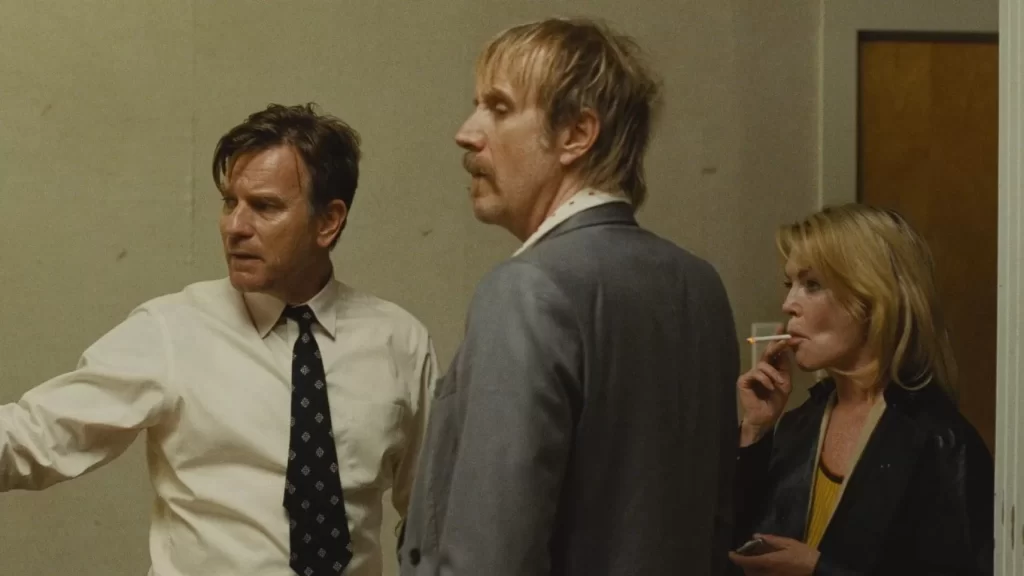
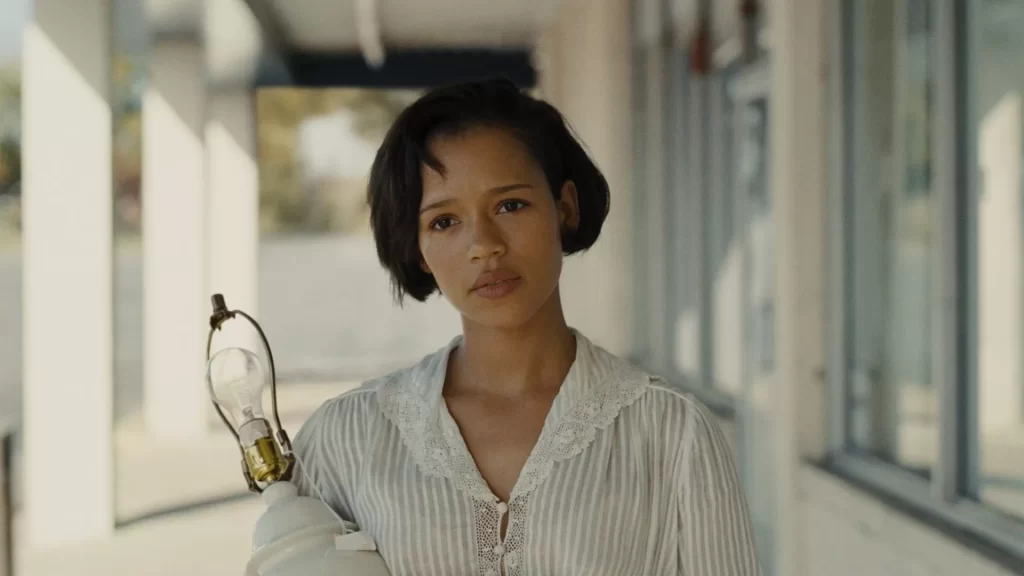
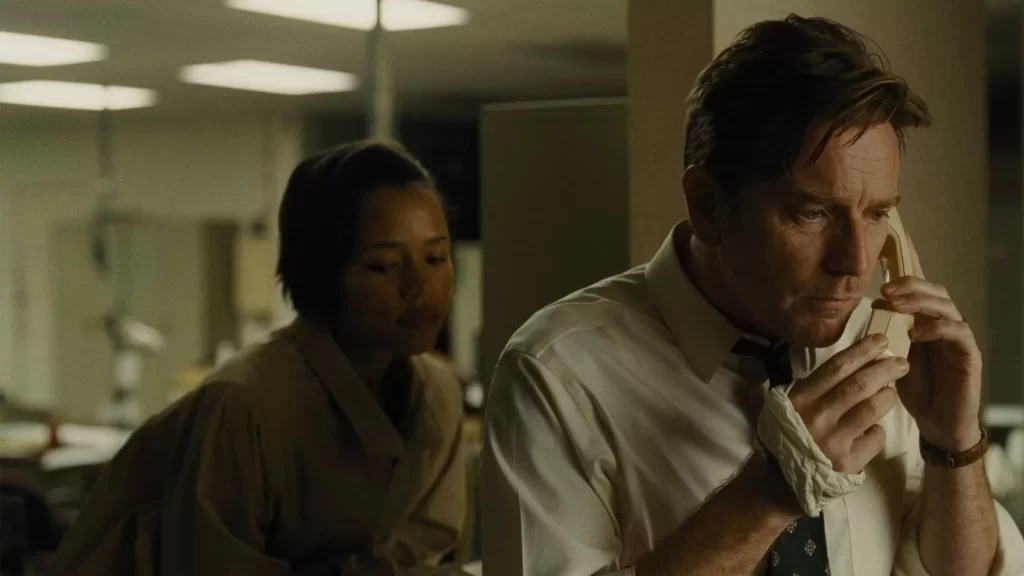
However, the film’s narrative structure proves to be its most divisive aspect. While some viewers appreciate the ambitious storytelling and its exploration of family dynamics, others find it disjointed and confusing. The plot often veers into absurdist territory, drawing comparisons to the works of Charlie Kaufman and Ari Aster. This approach may alienate viewers looking for a more straightforward narrative.
The central metaphor of the couch – representing both comfort and burden – is a recurring theme throughout the film. Critics are split on its effectiveness, with some finding it poignant and relatable, while others see it as heavy-handed and lacking subtlety. The film’s exploration of aging, family obligations, and unresolved grievances resonates with many viewers, even if the execution sometimes falls short.
“Mother Couch” attempts to blend dark humor with its existential themes, but the results are mixed. The film’s comedic moments, described by some as creaky and morose, don’t always land as intended. This tonal inconsistency can be jarring, potentially pulling viewers out of the emotional core of the story.
One of the film’s strengths is its ability to capture something authentic about the complexities of family relationships. The interactions between characters feel raw and genuine, even when framed within surreal circumstances. This emotional honesty helps ground the film’s more abstract elements and provides a human connection for viewers.
Critics have praised the film’s technical craft, noting Larsson’s confident handling of the camera and his ability to create visually striking scenes. The production design and cinematography work in tandem to create a world that feels both familiar and slightly off-kilter, mirroring the characters’ psychological states.
However, some viewers have found the overall experience unsatisfying. The film’s ambiguous narrative and open-ended conclusion leave many questions unanswered, which can be frustrating for those seeking closure or a clear message. The pacing has also been a point of contention, with some finding it slow and meandering.
“Mother Couch” tackles weighty themes such as mental health, family obligation, and the fear of aging. While these topics resonate with many viewers, the film’s abstract approach to addressing them may not connect with everyone. Some critics argue that the film’s metaphorical elements overshadow its emotional core, leaving the audience feeling disconnected from the characters’ struggles.
The film’s originality and unpredictability have been both praised and criticized. For some, the unconventional storytelling is a breath of fresh air in a landscape of formulaic narratives. Others find it pretentious and self-indulgent, arguing that the film prioritizes style over substance.
Viewers’ reactions to “Mother Couch” often depend on their tolerance for ambiguity and their willingness to engage with challenging material. Those who appreciate surrealist cinema and metaphorical storytelling may find much to admire in Larsson’s debut. However, viewers seeking a more traditional narrative structure or clear-cut resolution may leave the film feeling frustrated or confused.
Ultimately, “Mother Couch” is a polarizing film that defies easy categorization. Its strong performances, striking visuals, and ambitious themes are undeniable, even if the execution doesn’t always live up to its potential. The film’s exploration of family dynamics and existential dread resonates with many, while its narrative shortcomings and tonal inconsistencies leave others cold.
FAQ for “Mother, Couch” (2024)
Q: Who directed “Mother, Couch”?
A: The film was directed by Niclas Larsson, making his feature directorial debut.
Q: Who are the main cast members?
A: The film stars Ellen Burstyn, Ewan McGregor, Rhys Ifans, and Lara Flynn Boyle.
Q: What is the basic plot of the film?
A: An elderly mother (Ellen Burstyn) visits a furniture store and refuses to leave a display couch, setting off a series of events that impact her family’s relationships and mental states.
Q: What genre is “Mother, Couch”?
A: It’s primarily a surreal family drama with elements of dark comedy and existential themes.
Q: Is the film appropriate for children?
A: The film deals with mature themes and may be confusing for younger viewers. It’s best suited for adult audiences.
Q: Where can I watch “Mother, Couch”?
A: As of September 2024, the film is available for streaming on Hulu and can be rented or purchased on major digital platforms like Amazon Prime Video and Apple TV.
Q: What are critics saying about the film?
A: Reviews are mixed. Many praise the performances and ambitious storytelling, while others criticize the confusing narrative and heavy-handed metaphors. Check Rotten Tomatoes for an overview of critical responses.
Q: How long is the movie?
A: The film has a runtime of 1 hour and 47 minutes.
Q: Are there any post-credits scenes?
A: No, there are no post-credits scenes in “Mother, Couch.”
Q: Is the film based on a book or other source material?
A: No, “Mother, Couch” is an original screenplay written by Niclas Larsson.
Q: Has the film won any awards?
A: As of September 2024, the film has been nominated for several independent film awards but has not won any major accolades yet.
Q: Is “Mother, Couch” similar to any other films?
A: Critics have drawn comparisons to the works of Charlie Kaufman and Ari Aster due to its surreal elements and family-centric themes.
Q: What language is the film in?
A: The film is primarily in English.
Q: Does the movie have subtitles?
A: Subtitles are available in multiple languages on most streaming platforms and home video releases.



